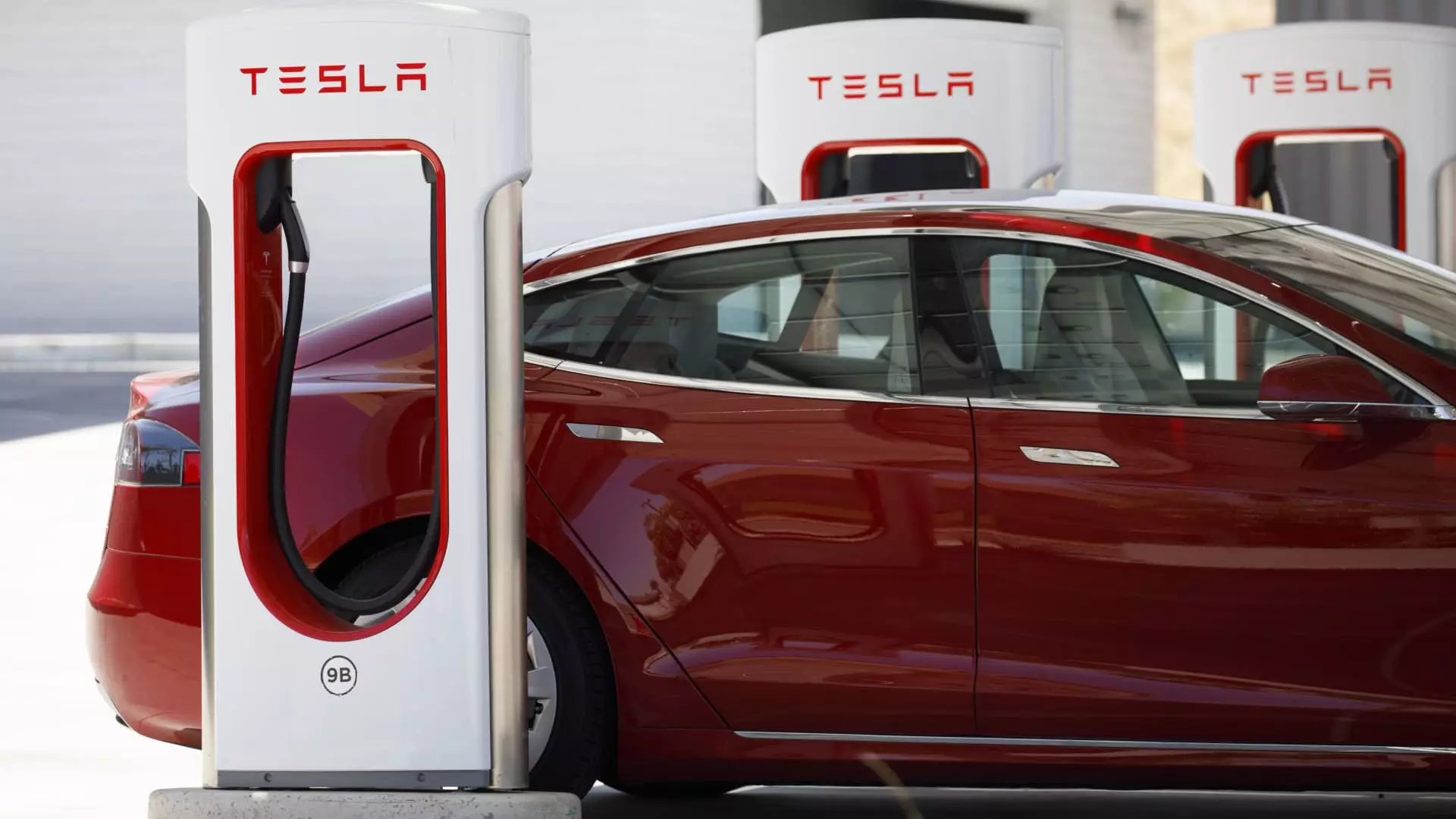The electric vehicle (EV) industry faced a major setback recently as Tesla missed its fourth-quarter revenue and profit targets, causing a ripple effect in the market. This article explores the implications of Tesla’s disappointing results and its impact on Asian electric vehicle makers and suppliers.
During an investor presentation, Tesla announced that it expects slower sales growth in 2024 compared to the previous year. The company cited its focus on launching a “next-generation vehicle” in Texas as the reason behind this projected decline. This warning sent shockwaves through the market, leading to a significant drop in Tesla’s stock price.
The Impact on Suppliers
The news of Tesla’s underperformance hit its suppliers hard, particularly in Asia. LG Display, a South Korean display manufacturer that supplies car displays for Tesla’s Model 3, saw its shares decline by more than 4%. Battery suppliers like LG Energy Solution, Samsung SDI, and Panasonic Holdings also suffered losses, with their stocks falling by approximately 2-3.8%. This downturn in the supplies sector indicates the broader consequences of Tesla’s disappointing results.
Tesla’s rivals in Asia, such as BYD, also experienced significant declines in their stock prices. BYD, which surpassed Tesla as the top-selling EV maker in the fourth quarter of 2023, saw its shares fall by about 2%. While BYD reported higher sales figures for the quarter, Tesla remained the leader in annual EV sales, delivering over 1.8 million vehicles in 2023 compared to BYD’s 1.6 million. Other Asian EV makers, including Nio, Xpeng, and Li Auto, also suffered losses in early trade, signaling the overall impact of Tesla’s performance on the industry.
Implications for the Electric Vehicle Industry
As a bellwether for the EV industry, Tesla’s disappointing results have broader implications for the sector. Investors and stakeholders closely monitor Tesla’s performance as a gauge for the overall health of the electric vehicle market. The decline in Tesla’s stock price and the subsequent losses in related industries point to concerns about the industry’s growth potential and the ability of EV makers to meet market expectations.
Tesla’s fourth-quarter revenue increased by 3% to $25.17 billion, slightly lower than the $25.6 billion expected by LSEG. Similarly, the earnings per share for the quarter came in at 71 cents, missing the forecasted 74 cents. However, Tesla’s net income more than doubled to $7.9 billion in the fourth quarter, mainly due to a one-time noncash tax benefit of $5.9 billion. While this may seem positive on the surface, the disappointing revenue and diluted earnings per share raise concerns about the company’s long-term financial stability.
Tesla’s underperformance in the fourth quarter of 2023 has sent shockwaves through the electric vehicle industry, impacting both Tesla’s suppliers and its Asian rivals. The decline in Tesla’s stock price and the overall negative sentiment highlight the uncertainties surrounding the growth of the EV market. As the industry’s dominant player, Tesla’s struggles are seen as indicative of broader challenges faced by the electric vehicle sector. It remains to be seen how Tesla and its competitors will navigate these hurdles and shape the future of the electric vehicle industry.

Leave a Reply